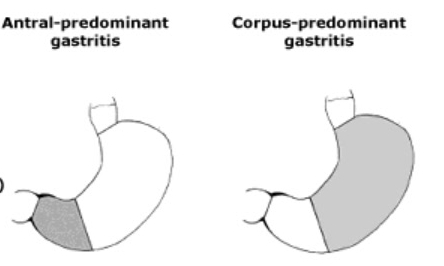How Does H. Pylori Affect Your Throat? Doctor Explains.
Our content is not intended nor recommended as a substitute for medical advice by your doctor. Use for informational purposes only.
The link between H. pylori, acid reflux, laryngopharyngeal reflux, and throat infection is controversial.
The role of H. pylori in throat symptoms is still unclear.
No definitive link was found between H. pylori and GERD (chronic acid reflux) which is often responsible for throat symptoms.
Some small studies detected H. pylori bacteria in the throat and the upper part of the esophagus.
Today, we will discuss (in simple words) the link between H. pylori and throat symptoms such as sore throat, globus sensation, mucus in the throat, and cough.
1. Does H. pylori cause GERD (acid reflux)?
Gastroesophageal reflux disease (GERD) or chronic acid reflux occurs when your stomach acid refluxes back up to the esophagus. Eventually, the acid may reach your throat and cause symptoms such as:
- Chronic reflux cough.
- Pain in the throat (sore throat).
- Globus sensation in the throat.
- Mucus in the throat.
- Painful swallowing.
- Water brush (increased salivation in the mouth and the throat).
- Chronic inflammation of the larynx (laryngitis).
H. Pylori doesn’t seem to cause GERD. According to studies, H. pylori doesn’t affect the lower esophageal sphincter (LES). The incompetence of the LES is responsible for acid reflux.
Moreover, H. pylori doesn’t seem to affect the esophagus motility.
However, The only way that h. pylori can affect GERD is probably by altering the acid inside the stomach.
For example, eradication of H. pylori in a subset of patients may improve GERD symptoms (in the antral predominant type of H. pylori gastritis).
If H. pylori gastritis involves the main body (corpus-predominant gastritis), Treatment of H. pylori may WORSEN the symptoms of GERD.

In conclusion, the link between GERD and H. pylori is weak, no evidence suggests that H. pylori is the main cause of throat symptoms with GERD.
Other explanations on how H. pylori can affect your throat are discussed below.
2. H. pylori and LPR (laryngopharyngeal reflux).
Your esophagus has 2 muscle rings at both its lower end (called the lower esophageal sphincter) and its upper end (called the upper esophageal sphincter.

When the acid reflux passes the upper esophageal sphincter, it can cause Laryngopharyngeal reflux (LPR). LPR can occur without the other symptoms of acid reflux (such as heartburn).
Symptoms of LPR are similar to the throat symptoms of GERD, including:
- Sore throat (pain).
- A sense of foreign body in the throat (globus sensation).
- Increased mucus in the throat.
- A sensation of sore fluid in your throat.
- painful swallowing.
The relationship between H. pylori and LPR is not well established in the studies. One study found that treatment of H. pylori didn’t improve the symptoms in patients with LPR (referene).
On the other hand, another study found that H. Pylori infection may increase the risk of throat problems such as LPR (reference).
Can H. Pylori infect your throat?
H. Pylori preferred site is the last one-third of the stomach.However, the organism can live in a variety of locations inside your body.
In this study, researchers successfully isolated H. Pylori in 38% of the cases of chronic pharyngitis (throat inflammation).
The researchers didn’t find H. Pylori in the throat of healthy people included in the study. These finding suggest that H. Pylori can infect your throat and cause inflammation (pharyngitis).
In conclusion, H. Pylori is a potential cause of your throat problem. However, We need more large-scale well designed studies to confirm the condition.
The screening of H. Pylori in chronic pharyngitis is still done for research purposes. H. Pylori throat screening may become a routine for chronic pharyngitis in the upcoming years.
Discuss the issue with your doctor if you have chronic throat problem that is not responding to usual treatments.
- Evidence-based
- Written by a doctor.

Related Posts:
- Can Gallbladder Pain Affect your Back Only?…
- Can Vomiting Blood Cause Death? Doctor Explains.
- 6 Causes of Bigger Stomach after Gallbladder Surgery…
- 7 Foods to Avoid With High Cholesterol (Doctor Explains)
- Can You Develop Lactose Intolerance Later In Life?…
- Worst Foods To Avoid If Prediabetic (Doctor Explains)










